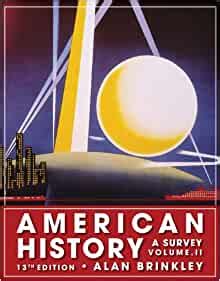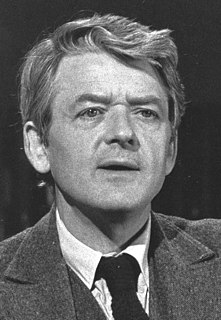A Quote by James Q. Wilson
We live in a world shaped by the ambiguous legacy of the Enlightenment...[it] enlarged the scope of human freedom, prepared our minds for the scientific method, made man the measure of all things, and placed individual consent front and center on the political stage.
Related Quotes
The Declaration of Independence has been called, with some justice, the most revolutionary document in human history, in that it placed the individual person first in the political scheme of things and made the legitimacy of governments and ruling classes contingent on their success at preserving individual rights.
The United States cannot reshape other countries in its own image and that, with a few exceptions, its efforts to police the world are neither in its interests nor within the scope of its resources. This whole tendency to see ourselves as the center of political enlightenment and as teachers to a great part of the rest of the world strikes me as unthought-through, vainglorious and undesirable.
The Idols of Tribe have their foundation in human nature itself, and in the tribe or race of men. For it is a false assertion that the sense of man is the measure of things. On the contrary, all perceptions as well of the sense as of the mind are according to the measure of the individual and not according to the measure of the universe. And the human understanding is like a false mirror, which, receiving rays irregularly, distorts and discolors the nature of things by mingling its own nature with it.
Nonviolence is the answer to the crucial political and moral questions of our time: the need for man to overcome oppression and violence without resorting to oppression and violence. Man must evolve for all human conflict a method which rejects revenge, aggression and retaliation. The foundation of such a method is love.
For my generation - the "Children of Nixon," as I call us in the book - the Lebanese civil war was an iconic event. Downtown Beirut became a metaphor for so many things: man's inhumanity to man, what Charles Bukowski called "the impossibility of being human." It shaped our perceptions of war and human nature, just as Vietnam did for our parents. We used it to understand how the world works.
The sciences that purport to treat of human things -- the new scientific storyings of the social, the political, the racial or ethnic, and the psychic, nature of human beings -- treat not of human things but mere things, things that make up the physical, or circumstantial, content of human life but are not of the stuff of humanity, have not the human essence in them.
Parents are not the all-knowing, ideal people we would like you to think we are. We've made wrong choices before, and will again, like everyone else, .. But our mistakes are not the measure of our love for you. You are that measure, and how well you are prepared to make better choices than we have made.
The interesting scope of Mark Twain's development as a human being is that he grew. He saw, he travelled, he studied this country and later the world with the eye of a man educating himself. This is a central fact in the Mark Twain legacy. He became an American spokesman for the ideals of racial equality and dignity for the working man because he was willing to look the world in its face and see, really see what was happening to the people in it.

































